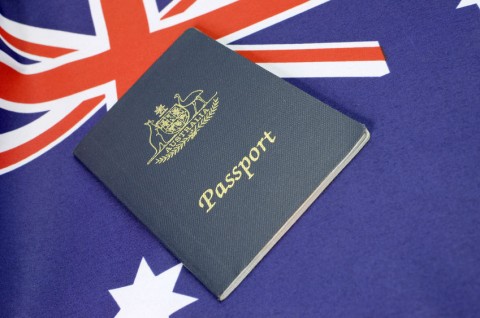Key terms: Citizenship – Australia – Australian Citizenship Legislation Amendment (Strengthening the Requirements for Australian Citizenship and Other Measures) Bill 2017 (the Bill) – High Court citizenship ruling – Dual Citizenship – Australia Citizenship requirements – Australia MPs – Banarby Joyce – Fiona Nash – Malcolm Roberts – Larissa Waters – Scott Ludlam – Nick Xenophon – Matthew Canavan
On 20 April 2017 the Australian Department of Immigration and Border Protection (DIBP) announced that changes are being introduced to the Australian citizenship requirements. The changes include:
- Increased residency requirements (from one year to four)
- Meeting an English requirement
The changes are meant to be in effect once the Australian Citizenship Legislation Amendment (Strengthening the Requirements for Australian Citizenship and Other Measures) Bill 2017 (the Bill) gets passed in Parliament. Unfortunately applications yet to be decided were also put on hold until the Bill can be passed.
Call +61 8 8351 9956 Email [email protected]
Most Recent News
All News
Results for the latest SkillSelect invitation round on 26 July 2017 have been published. Here is a summary of the results:
- 1000 Skilled Independent visa invitations were issued
- applications with 70 points or more were invited
- applications submitted 15 July 2017 have been invited
- 210 Skilled Regional Sponsored visa invitations were issued
- applications with 60 points or more were invited
- applications submitted 25 July 2017 were invited
Key terms: Medium and Long Term Skilled Shortage List – MLTSSL – Short Term Skilled Occupation List – STSOL – Skilled Occupation Lists – 1 July Changes
Welcome to world of confusing skilled occupation lists. As we all know the Skilled Occupation List (SOL) and Consolidated Skilled Occupation List (CSOL) were replaced by the new Medium and Long Term Skills Shortage List (MLTSSL) and the Short Term Skilled Occupation List (STSOL) on 19 April 2017. Until 30th June 2017 the change was essentially a change in name (and removal of 216 occupations). As of 1st July 2017 we now have additional changes to the applications of the MLTSSL and the STSOL.
There are now different MLTSSL and STSOL for different visa programmes
Key terms: Subclass 190 Skilled Nominated visa – Subclass 489 Skilled Regional Sponsored visa – State Sponsorship – State Nomination – Occupation Lists
State sponsorship is a critical component of the Australian visa application for many. Having a state nominated visa application provides:
- an immediate Invitation to Apply (ITA) for the subclass 190 Skilled Nominated and subclass 489 Skilled Regional Sponsored visas, i.e. not subject to invitation round points requirements
- access to additional occupations on the Short-term Skilled Occupation List (STSOL) - each Australian State and Territory creates their own list from the STSOL)
Typically there are limited places for each occupation being sponsored by the different States and Territories. The best time to apply is in early July (NOW) as the planning numbers are reset for the new financial year.
Key terms: Migration Policy Changes – 1 July Changes – Subclass 189 Skilled Independent – Subclass 190 Skilled Nominated visa – Subclass 489 Skilled Regional Sponsored visa – MLTSSL – STSOL – Occupation Lists - Subclass 186 Employer Nominated Scheme - Subclass 457 Temporary Work (Skilled) - Occupation caveats
The Department of Immigration and Border Protection (DIBP) has released updates to the following skilled occupation lists:
- Medium and Long-term Strategic Skills List (MLTSSL)
- Short-term Skilled Occupation List (STSOL)
- Employer Nominated Scheme (subclass 186) – Direct Entry Stream Occupation List
- Temporary Work (Skilled) visa (subclass 457) Occupation List
- Training visa (subclass 407) Occupation List for Nomination eligibility type 2
In summary 12 occupations were removed from the occupation lists, namely:
Key terms: Migration Policy Changes – 1 July Changes – Subclass 189 Skilled Independent – Subclass 190 Skilled Nominated visa – Subclass 489 Skilled Regional Sponsored visa – Age requirements – English exemptions – MLTSSL – STSOL – Occupation Lists -
There are plenty of changes happening to the Australia migration programme on 1 July 2017. Here is a summary of the major changes affecting the most common visa subclasses.
Age requirements lowered for a number of visas!
The age limits of the following visas have been reduced to below 45 years of age:
At the time of application
- Subclass 186 Employer Nomination Scheme Direct Entry stream
- Subclass 187 Regional Sponsored Migration Scheme Direct Entry stream
At the time of invitation to apply
- Subclass 190 Skilled Nominated
- Subclass 489 Skilled Regional Sponsored
- Subclass 189 Skilled Independent
Previously it was announced that the lower age requirement was only applicable to the subclass 189 Skilled Independent visa application. The age limit does not apply to applicants for the NZ stream for the subclass 189 Skilled Independent visa.
Key terms: Migration Policy Changes – Online system outages – 1 July Changes – Western Australia State Migration – State Sponsorship – Subclass 190 Skilled Nominated visa – Subclass 489 Skilled Regional Sponsored visa – Regional Sponsored Migration Scheme (RSMS) – Australian citizenship
ImmiAccount System Outage on 30 June 2017
The Department of Immigration and Border Protection (DIBP) has announced that the ImmiAccount system will not be available from the following times:
New South Wales, Victoria, ACT, Queensland
9pm AEST Friday 30 June until 1pm Saturday 1 July 2017
South Australia, Northern Territory
8.30pm ACST Friday 30 June until 12.30pm Saturday 1 July 2017
Western Australia
7pm AWST Friday 30 June until 11am Saturday 1 July 2017
If you are thinking about submitting an online visa application you will need to do so before the times above.
Key terms: Migration Policy Changes – Partner Visas – Subclass 820/801 – Subclass 309/100 – Sponsor Requirements – Family migration
2018 Update & Related Articles:
Planning to lodge a partner visa application? You will soon need to apply for sponsor approval first!
Amendments introduced in the Migration Amendment (Family Violence and Other Measures) Bill 2016 describes that a separate sponsorship application is necessary before one can submit a partner visa application. Originally planned for implementation on 1 July 2017, we now know that the change will only be implemented in 2018 because the Bill has not been enacted.
At the time of writing there are still no details released by the Department of Immigration and Border Protection (DIBP) in relation to the process of applying for the sponsor approval.
Key terms: Migration Policy Changes – Employer Sponsored Visas – Subclass 187 RSMS – Subclass 186 ENS – English Requirements – Age Requirements – STSOL – MLTSSL
By now most will know that the permanent employer sponsored visas will see changes being introduced on 1 July 2017 and in March 2018. The changes announced will affect the following visas:
- the subclass 186 Employer Nomination Scheme (ENS) visa
- the subclass 187 Regional Sponsored Migration Scheme (RSMS) visa
We have received many enquiries in relation to the changes, with many confused between what changes are happening on 1 July 2017 and March 2018. To help you understand the changes better here are the top 10 questions about the permanent employer sponsored visa changes answered.
Key terms: Migration Policy Changes – Employer Sponsored Visas – Subclass 187 RSMS – Subclass 186 ENS – English Requirements – Age Requirements
With the announcement of the 457 visa programme being abolished in March 2018, the Department of Immigration and Border Protection (DIBP) also announced changes to be introduced to the permanent employer sponsored visas, which include:
· the subclass 186 Employer Nomination Scheme (ENS) visa
· the subclass 187 Regional Sponsored Migration Scheme (RSMS) visa
The changes are planned to be introduced in stages on 1 July 2017 and March 2018. In this article we will be looking at the changes coming on 1 July 2017.
Popular News Tags
Services
Sign up to our Migration Newsletter
Copyright © 2026 MARA Code of Conduct Privacy Policy Disclaimer Site Map
Office: 212 Port Road, Hindmarsh, SA 5007, Australia
Post: PO Box 3057, Hilton Plaza, South Australia, 5033, Australia
ABN: 75 889 635 782











